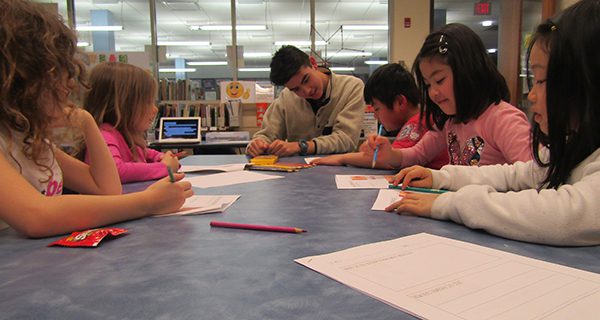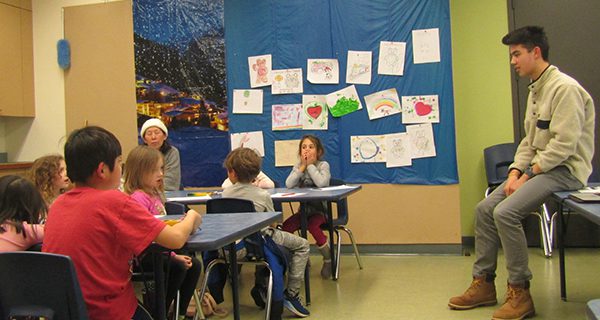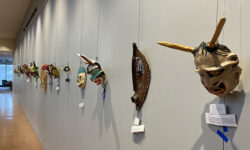[ccfic caption-text format="plaintext"]
By Amelia Tarallo
Hometown Weekly Staff
For the past few months, people have been dodging the various strains and types of illnesses going around, from the newly-discovered coronavirus to the seasonal flu. These viruses and methods to prevent them were perfect fodder for the most recent session of Little Labcoats, held at the Needham Library on Thursday February 13th.
Teacher of Little Lab Coats Niki Apostolicas began the class doing introduction by having each kid say their name, what they do when they’re sick, and if they’re afraid of shots. Apostolicas then asked the kids what they knew about medicine. “It stinks!” one girl volunteered.
“It makes you feel better!” said another child. Apostolicas nodded to confirm that both facts were true before explaining the basics of the pathogens medicine fights off, and why they are so dangerous in the body.
Apostolicas then discussed how pathogens enter the body from through actions (or, in some cases, inactions), like touching people who are sick, not washing hands, or being around someone who has just sneezed or coughed. In some cases, these pathogens even sneak through open wounds. From there, they enter the body, multiply, and make people sick.

Niki Apostolicas used packets to help the kids learn about germs, and answered questions about how people get sick.
Perhaps the most important moment of this Little Lab Coats session revolved around Apostolicas explaining how vaccines work. Many of the children mentioned that they didn’t like shots at the beginning of the session, and that they didn’t know what they actually did. Most vaccines fall into two categories: a live attenuated vaccine which contained weakened versions of the pathogens (MMR) or inactive vaccines, in which the pathogen is dead (Polio). Though the version of the viruses are weakened in vaccines, they still trigger an immune response in the body, allowing it to learn and memorize how to fight from these pathogens.
“It’s like studying for a spelling test,” one of the kids muttered.
To end the session, all of the kids received a piece of paper on which to draw. “We’re going to draw a person who’s getting sick,” explained Apostolicas. Each of the kids first drew a person and then added each of the elements mentioned by Apostolicas. The children managed to depict the cycle of fighting off pathogens, including germs on the people’s hands and mouths, a doctor, and even stickers. A few kids even included their own version of the coronavirus in the drawing.
Though it is unknown whether these kids have changed their opinions on shots, they did leave understanding why one shot is better than a lifetime of illnesses.
They may even listen when their parents remind them to wash their hands.























